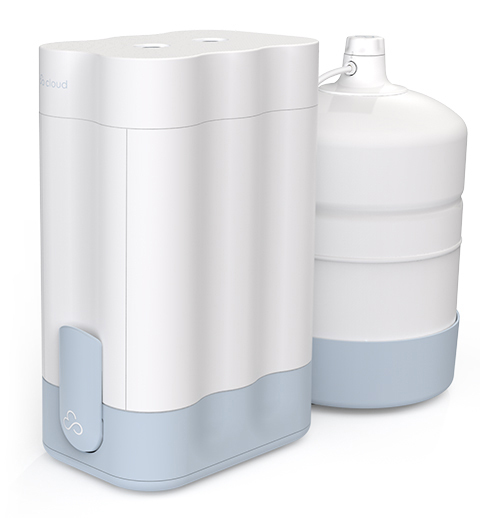How to Tell If Your Water Filter Needs Changing
Unpleasant odor, bad taste, discoloration and decreased flow rate are the obvious signs that your water filter might need to be changed.
If you have a reverse osmosis (RO) system and you don’t notice any of these signs, you can use a TDS meter to check if your RO membrane is still working.
Factors That Affect Filter Lifespan
How long a filter lasts depends on:
- How often you use it
- Contamination levels
- Type of filter
- Type of filtration system
Let’s check these out in a little more detail...
The more you use your filter, the faster the toxins will build up and the sooner it will need to be replaced.
A family of four may need to replace the carbon filter on their new under-sink system every 6 months. However, a couple with no kids may only need to replace it once a year.
More contaminants means more wear and tear.
A carbon pre-filter will wear out faster if the chlorine levels in your city are high, and you may have to replace it every 6 months instead of 12.
Sediment and carbon filters have shorter lifespans than RO membranes and polishing filters because they take the brunt of the abuse.
By the time the water reaches the RO membrane and polishing filter, the water is already a lot cleaner.
4. Type of Filtration System
Not all water filtration systems are created equal.
Some, like RO systems, are designed to handle heavily contaminated water without having to change filters too often.
Simple carbon filters, on the other hand, are less effective and need to be changed more often.
5 Common Water Systems and When Their Filters Need to Be Replaced
There are water filtration systems for every occasion. Some fit under your sink, some attach to your faucet, some sit on your counter, and others connect to your fridge.
But they all have one thing in common: at some point, their filters are going to need to be replaced.
1. Reverse Osmosis Filters
Reverse osmosis (RO) filters work by forcing pressurized water through a semipermeable membrane with ultra-fine pores. Contaminants get trapped on one side, and filtered water flows right on through.
RO systems remove 99.9% of dangerous contaminants.
Most RO systems last between 10 to 15 years, but the RO-membrane, pre-filters and post-filters need to be replaced every 6 to 24 months.
- Sediment and carbon pre-filters: Every 6 months to a year
- Polishing and post-filters: Once a year
- RO membrane: Every 2 years
Some RO membranes can last longer if they include a water softener and the pre-filters are changed regularly.
Water pitcher filters are hand-held containers with a sediment and carbon filter inside. They use gravity to slowly filter roughly 3 liters of water at a time.
The carbon and sediment filters need to be replaced at least every six months, but if you fill it several times a day you may have to replace them more often.
Pitcher filters improve the smell and taste of the water by removing chlorine, as well as trace heavy metals and other contaminants.
Faucet filters attach directly to the spout of the kitchen faucet.
Similar to water pitcher filters, they use activated carbon to remove chlorine and other basic contaminants.
Although they’re easy to install, they have a couple downsides: you’ll have to replace them more frequently than other types of filters and they can reduce the flow rate pretty significantly.
A large family might have to replace their faucet filter as often as once every 3 months, but smaller households should last around six.
A countertop water filter is essentially a jumbo-sized pitcher filter that sits on the kitchen counter.
The larger size means that they can squeeze in extra features, like mineral balls to help balance the water’s pH.
But countertop filters cannot remove high concentrations of dangerous contaminants. For that, you’ll want to stick with an RO system.
Countertop filters need to be changed every 6 to 12 months depending on how often it gets used.
Point-of-entry reverse osmosis (RO) systems can protect the entire house from “hard” water and 99.9% of dangerous contaminants.
Because they process such a high volume of water, the filters may need to be replaced every 3 to 6 months.
In most cases, a whole house system is a little overkill unless you have extremely “hard” water that gunks up your pipes, or if you want to protect yourself from bacteria and chemicals that irritate the skin and might make you sick.
What Happens If You Don’t Replace Your Water Filters?
If you neglect your filters, they can clog with debris, grow bacteria, and become saturated with toxins.
Old carbon filters are notorious for trapping contaminants and then leeching them back into the system. Instead of taking toxins out, they add them back in!
Luckily, there’s a way to guarantee that your filters are always replaced at the right time...
Cloud Water Filters use built-in software to track your water usage and automatically ship replacement filters and RO membranes directly to your door.
Click here to learn more.

